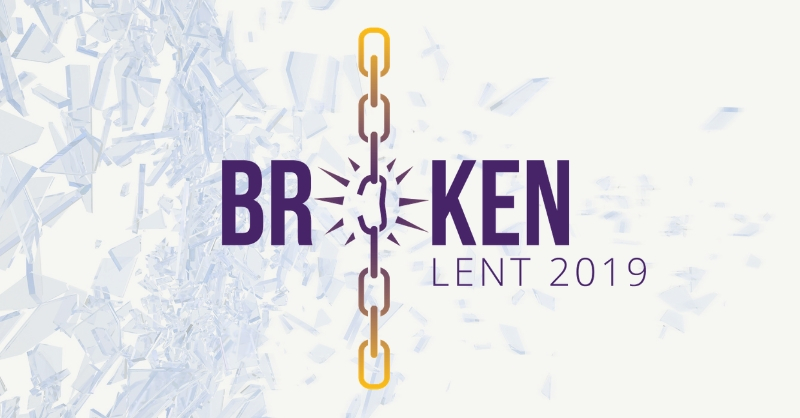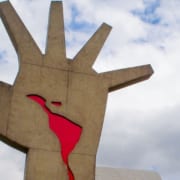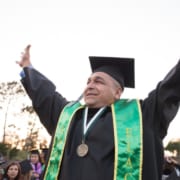Day 22 | Broken People in a Broken World
BY FRANK KOVARIK | March 27, 2019
Today’s Readings

In the context of the brokenness of human history, Moses’ words from Deuteronomy seem to carry ominous echoes of domination and colonial brutality: “enter in and take possession of the land … occupy.”
In the context of a broken USA, nativism and self-righteousness motivate calls to wall ourselves off, to torture and kill to ensure our security. Today’s responsorial psalm seems to provide divine justification. It urges us to praise the God who has “strengthened the bars of [our] gates” and “blessed [our] children within.” God built that wall and fortified our gated community, the psalmist seems to be saying.

Moreover, “He has not done thus for any other nation.” Of course not: they aren’t the chosen ones, right? We are. And why are we the chosen nation? It must be because we observe God’s commandments (even when we obviously do not).
We are broken people living in a broken world, so it should not be surprising that our Scriptural exegesis is often broken, too. Passages like those in today’s readings have been misused to justify subjugation, enslavement, and exploitation, and as license to see power and wealth as signs of God’s favor.
Yet Jesus repairs this brokenness, reminding us that earthly status is not the true measure of God’s favor. Instead, it is in the kingdom of heaven where those who keep the commandments will be called greatest, and where those who break the commandments and teach others to do so will be called least. And what are God’s commandments, simplified and fulfilled by Jesus? To love God above all and to love one’s neighbor as oneself: commandments which endure as unbending rebukes to all domination and exploitation, and which hold out to the brokenhearted the Easter promise of rebirth.
Frank Kovarik is director of equity and inclusion and chair of the English department at St. Louis University High School. He is the author of To God, with Gratitude: 200 Years of SLUH, a book commemorating the school’s 2018 bicentennial. He and his wife Lisa Granich-Kovarik have three daughters.









Subjugation, enslavement, and exploitation of human beings – cannot have a place in the 21st century.
Today’s readings have made me see that any interpretation at any time of the ancient scriptures
is missing the ultimate truth within.
“forever at God’s door, I gave my heart and soul, my fortune too,
I have no flock any more, no other works in view.
My occupation LOVE
that’s all I do” John of the Cross
This is so disturbing to me. Especially disturbing is the way we “use” and “interpret” scripture to justify the terrible things we do to others. What is the answer? Is there an alternative interpretation to this? I see Friederike’s – thank you. Would love to hear more on this.
Melissa, one of my colleagues, a Jesuit scholastic, pointed out the importance of reading the Old Testament contextually, understanding the historical and cultural moment out of which it came, and not simply reading these passages—like the ones from Deuteronomy and Psalms—as if they apply directly or uncomplicatedly to us as 21st-century Americans. I think that might be what Friederike is getting at as well.
Thank you for this meditation. The world is, indeed, so very, very broken and we have strayed so very, very far from the greatest commandments. It is heartening, in this darkness, to be reminded of the grace of God, of the interminable ability of love to heal our brokenness, and to be called, right here and now, to be the love of Christ in our every day encounters so that we might build a world reflective of his life and love. Thanks for this morning’s wake up call.
Excellent. Thank you!